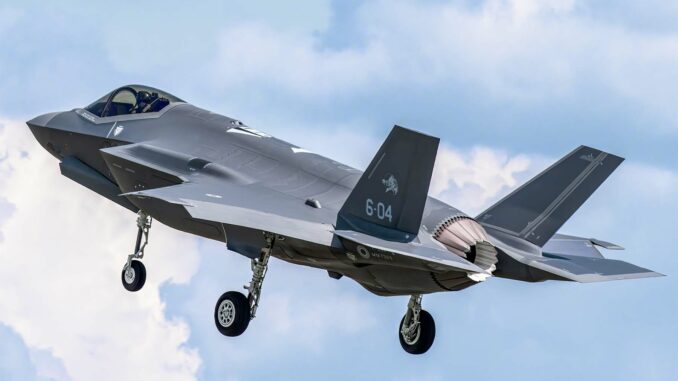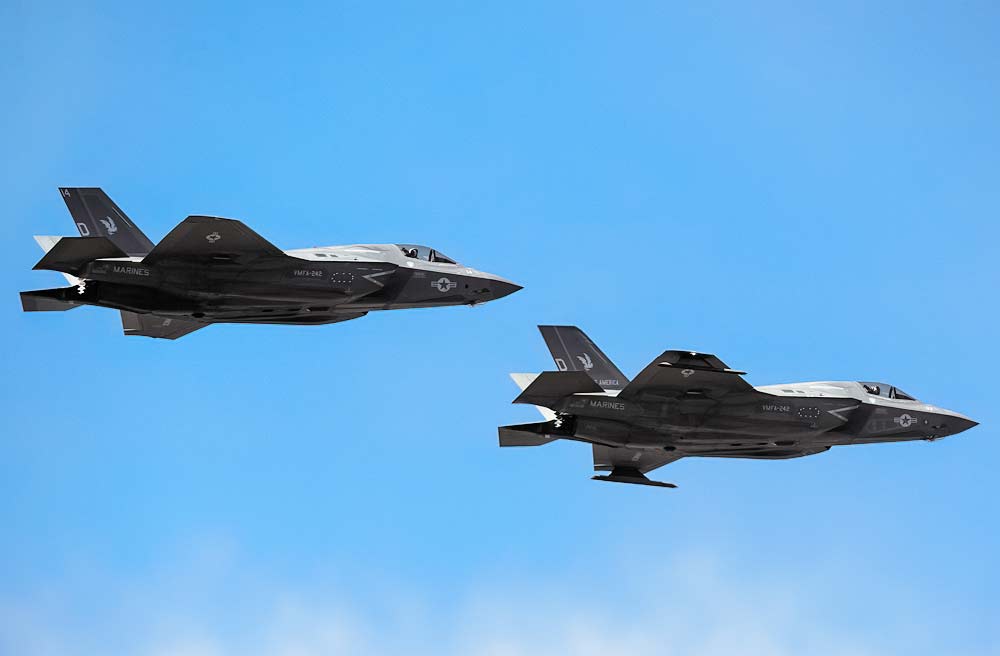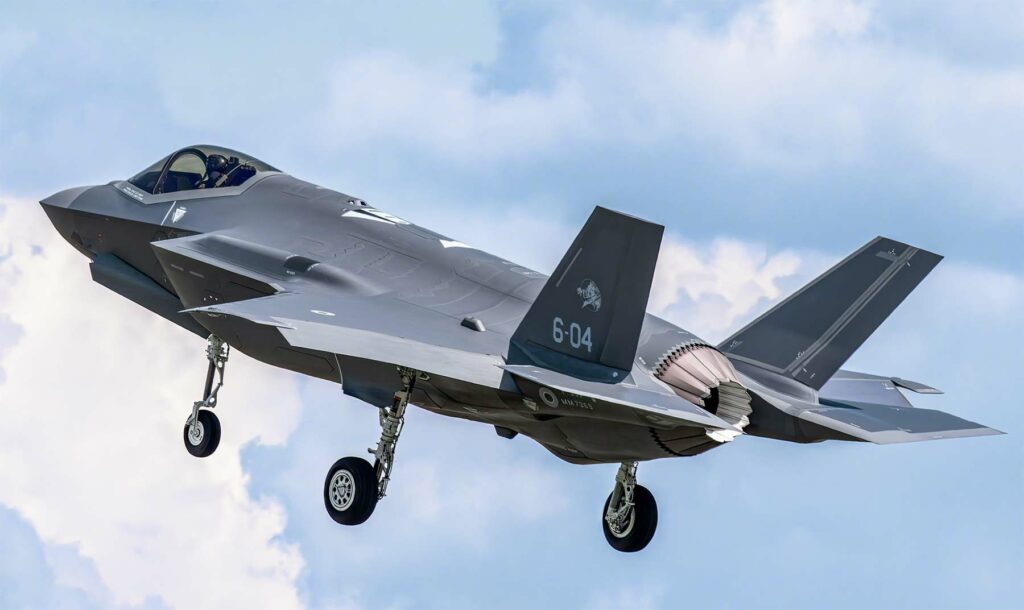
Delays in delivery of the F-35 are disrupting upgrade plans for European air forces, with implications for training and operational capability.
European air forces are facing a major challenge: delays in delivery of the F-35 Joint Strike Fighter threaten to compromise their modernization plans. These disruptions come at a critical time, when European security is under the spotlight more than ever due to rising regional tensions. This article examines the impact of these delays on the European countries concerned, the solutions being considered to alleviate these problems, and the wider implications for regional and international security.

Background and issues
The F-35, designed by Lockheed Martin, represents the cutting edge of military air technology. Its acquisition by several European countries is part of an effort to modernize their often aging fleets of F-16 fighters. However, upgrading to TR-3 (Technology Refresh 3) technology has led to significant delivery delays, with direct repercussions on operational readiness and pilot and technician training.
Impact on European air forces
Denmark and Belgium: a worrying situation
For Denmark and Belgium, the transition to the F-35 Joint Strike Fighter represents more than just an upgrade of their air fleets; it is a major transformation of their defense capabilities. But this transformation is being undermined by delivery delays. Denmark, which has received only four of the twenty-seven F-35s ordered, finds itself in a delicate position. These aircraft are essential not only to replace the old F-16s, but also to ensure that the country remains at the cutting edge of military air technology.
Belgium, meanwhile, is still awaiting the arrival of its first F-35. The situation is all the more worrying as the country had planned to start replacing its aging F-16s with F-35s in 2023, a plan now compromised by delays.
Illustration of the Danish case
To understand the scale of the problem, let’s take Denmark as a case in point. The four F-35s already delivered are insufficient to enable a smooth transition from the F-16 fleet. Full operational capability and crew training are at stake. Denmark is therefore considering exceptional measures, such as repatriating some of its F-35s currently stationed at Luke Air Force Base in the USA, where they are used for training purposes. This solution would partially fill the gap left by delivery delays.
The Belgian option
Faced with a similar challenge, Belgium is also examining alternative solutions to make up for the absence of its F-35s. Purchasing or borrowing aircraft from other F-35 operators is one option being considered to avoid a capability gap that could affect its air defense.
Solutions and adaptations
Faced with these delays, Denmark and Belgium have shown a remarkable ability to adapt, exploring various avenues to minimize the impact on their air forces.
The Danish case: flexibility and pragmatism
Denmark illustrates this flexibility by considering the repatriation of F-35s from the USA. This would require close coordination with international partners, underlining the importance of cooperation in maintaining operational readiness. Denmark is also exploring the idea of borrowing or purchasing F-35s from other user nations, a strategy that demonstrates pragmatism in the face of unforeseen circumstances.
Belgian adaptation: looking for interim solutions
Belgium, for its part, is also proactive. Pending delivery of its F-35s, the country could turn to other members of the F-35 alliance to secure additional aircraft, either by purchase or loan. This approach would help maintain the skills of its pilots and the operational capability of its air fleet during this transitional period.

Long-term consequences and outlook
F-35 delivery delays are not without consequences for Europe’s defense posture. In the short term, they could affect the ability of the countries concerned to fulfill their security and defense commitments. In the long term, this could necessitate a reassessment of defense plans and potentially lead to increased dependence on other nations for regional security.
–
Delays in delivery of the F-35 pose a significant challenge to European air forces, highlighting the complexity of modernizing defense capabilities in the age of advanced technology. Despite these obstacles, the countries concerned are striving to find pragmatic solutions to ensure the continuity of their operational capabilities. The situation underlines the importance of flexibility and international cooperation in maintaining regional security in an ever-changing geopolitical environment.
War Wings Daily is an independant magazine.